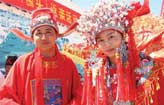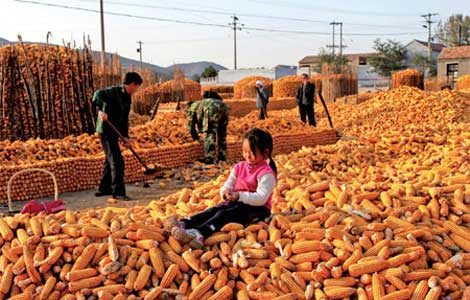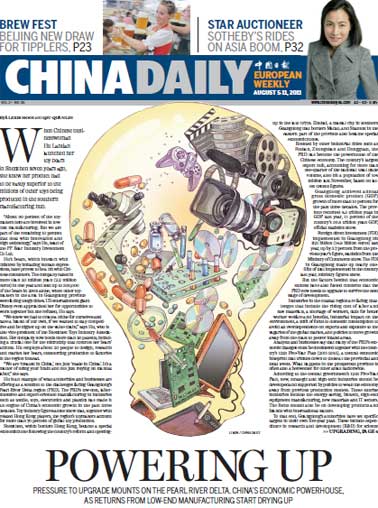Photos
Media should follow the right path
Updated: 2011-08-08 07:55
By Guo Jisi (China Daily)
The News International phone hacking scandal in the United Kingdom has been making headlines for nearly a month, as the UK's best-selling Sunday tabloid, News of the World, published its last edition, a handful of high-ranking officials resigned, and quite a few people were arrested. But still the firestorm is yet to be doused.
What lessons can be drawn from the scandal? Western critics have accused observers in developing countries of schadenfreude, but outsiders can sometimes have the clearest view.
For too long, media in the UK have made a point of claiming they fly the flags of freedom, democracy and human rights. But it seems they only have a theoretical knowledge of what can and cannot be done in a civilized society. There are obvious discrepancies between what they practice and what they preach.
When it was reported that the News of the World had hacked the mobile phone of a 13-year-old murder victim Milly Dowler and even deleted some messages from her family members once the inbox was full, the whole world was shocked.
The fallout from the disclosure was serious, leading to the closure of the 168-year-old tabloid and throwing media mogul Rupert Murdoch and high-ranking politicians into troubled waters
Is this the sole scandal committed by the British media? Probably not.
Some of them do not hack phones, but they tend to use other unlawful tactics to provide biased news coverage in the name of press freedom.
"Fleet Street in general has long had a well-earned global reputation for the blind-quote, single-sourced story that may or may not be true", an editorial of the Wall Street Journal said.
And it is not just the UK media, we may also recall the coverage of the 2008 Lhasa riots in the Tibet autonomous region of China. Certain Western media purposefully used unconfirmed information or even manipulated photos to fabricate a so-called crackdown and glorify the violence. The false reports sparked widespread outrage, and the media finally had to apologize. Checking reports on incidents in other developing countries it is not difficult to find that similar tricks were employed by the media to manipulate the facts.
The media should always bear in mind that any kind of press freedom should be conducted within the law and basic journalistic ethics should be respected. There is nothing wrong with making a profit, but the media cannot make money by sacrificing and tarnishing the rights and reputations of people and countries. Only by remaining impartial and objective can the media win the respect and favor of their audience.
"The word of truth lasts forever, but lies last only a moment."
Western media always like to boast that they are the Fourth Estate, independent of the administration, judiciary and legislature. But the News of the World scandal shows, in the UK at least, it is just the opposite.
According to Jonathan Tonge, professor of politics at Liverpool University, a "triangle of collusion" between media, police and politicians has taken shape. David Cameron, the UK Prime Minister, met Murdoch frequently in the run-up to the 2010 general election, and was rewarded with the latter's support; the highest-ranking UK police official hired a former News International journalist as a communication advisor.
No wonder politicians and police appeared to turn a blind eye to the illegal practices and Murdoch had direct or indirect influence on government policies for three decades!
However, if the Western media, the general public and governments can draw the appropriate lessons from this scandal and do something positive, there might be a blessing in disguise for the UK and the rest of the world.
The News of the World "lost its way". It is hoped that many others find the right way in the future.
The author is a Beijing-based scholar of international relations.
(China Daily 08/08/2011 page8)
E-paper

My Chinese Valentine
Local businesses are cashing in on a traditional love story involving a cow herder and a goddess
Outdoor success
Lifting the veil
Allure of mystery
Specials

Sowing the seeds of doubt
The presence in China of multinationals such as Monsanto and Pioneer is sparking controversy

Lifting the veil
Beijing's Palace Museum, also known as the Forbidden City, is steeped in history, dreams and tears, which are perfectly reflected in design.

Beer we go
Early numbers not so robust for Beijing's first international beer festival
